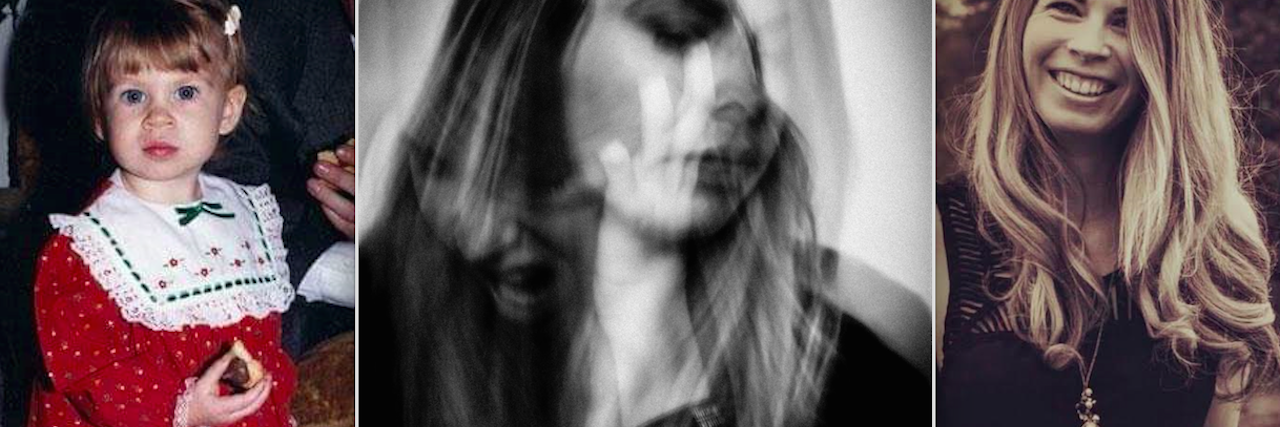A Journey With Borderline Personality Disorder
My Childhood
“We were born to be real, not perfect.”
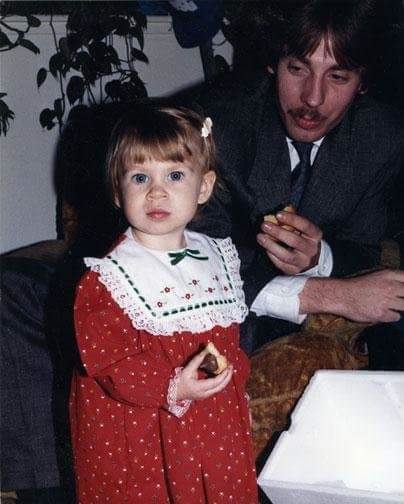
I was always very shy and timid growing up. I never did drugs, I never ran away, I never drank or broke the law, I never self-harmed. I didn’t have a lot of friends and was often bullied or made fun of for my appearance. I tried to participate in sports but never made the cut. The lack of validation and inclusion took a toll on my self-esteem. I often felt I wasn’t “good enough” for anyone or anything. I didn’t have a sense of self for years and this resulted in being a “follower” and only being interested in the things my small social circle was interested in.
Overall, at home and at school, I didn’t have the best childhood or teenage years. I felt trapped and worthless. Although I didn’t believe it at the time — I know now I was a good kid. The moment I could, I tried to escape the pain. I graduated high school early and started working full-time immediately. I fell in love, got pregnant and married at 18 and bought a brand new house by the age of 20. Everything happened so quickly. Then, what felt like “out of the blue,” I found myself with intense emotions that were out of control. I felt clueless, lost and completely alone surrounded by everything I could have ever dreamed of having around the age of 22.
Cry for Help
“Not all wounds are visible.”
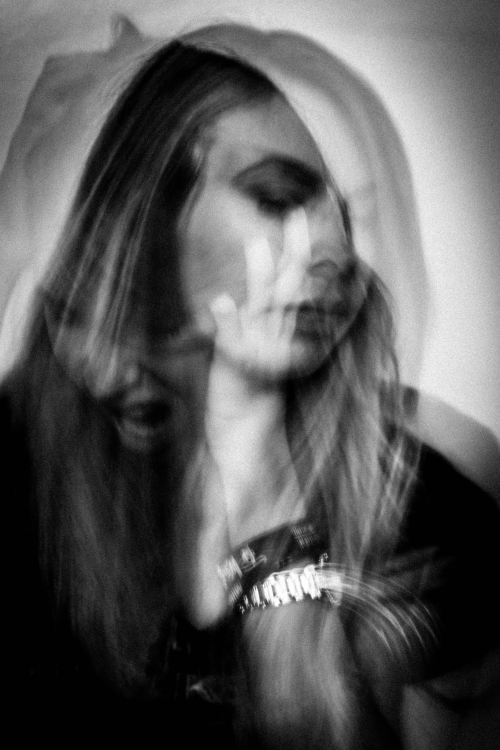
Although I wore a cheerful facade and kept my life busy, eventually I started behaving in ways I didn’t understand. I wasn’t myself and I began reacting to certain situations and people in ways I never thought I would. I started seeking out attention, being angry often, found myself crying immensely, cared less for others and didn’t appreciate anything around me. I was crumbling on the inside. My husband at the time didn’t understand what was going on or how to handle it. He had me on a pedestal and it still wasn’t “enough” for me. I was lacking the emotional support in my life. “It’s just hormones.” or “It’s just post-partum. You’ll get over it” or “PMS’ing again I see.” I knew it was more than that but instead of seeking help, I continued to act out — quietly. My facade came crashing down after my illness took me hostage. Not long after, I left my marriage and house behind and wanted to live alone and free to do whatever I wanted. I behaved selfishly and was self-destructive in a lot of ways. I tried escaping the pain yet again by leaving. It didn’t work. That’s when I was introduced to Rock Bottom.
My Diagnosis
“We are survivors from the moment of diagnosis.”
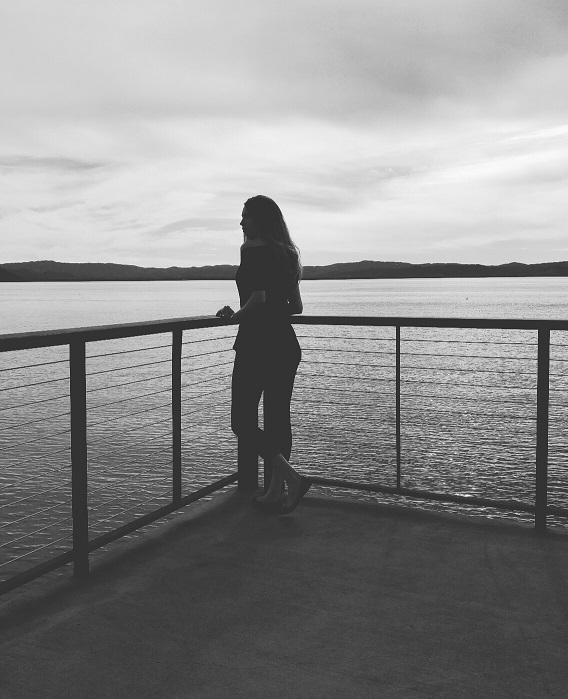
It’s been four years since my diagnosis. I can remember the day vividly; being handed a pamphlet from my psychologist titled “borderline personality disorder” (BPD). I was relieved and scared. I finally had answers to my years of suffering, but I didn’t know where to begin to recover. The word that stood out to me most that session was “recoverable”.
My psychologist immediately advised I should be on a mood stabilizer and considered me an “at risk” patient. A few painful months later, I decided to take the medication, albeit reluctantly, due to my own ambivalence. I did so to help ease the intensity of my emotions in order for me to learn how to cope in a healthier more positive way, for myself and my two kids.
My Research:
“Research is formalized curiosity.”
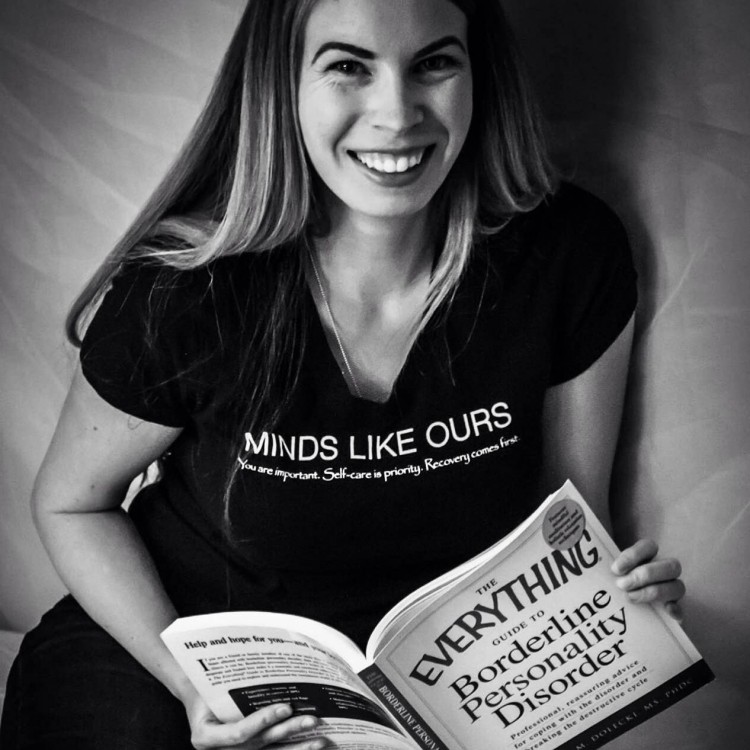
According to the DSM, an individual must meet five of the nine symptoms to be diagnosed with BPD. At the time of my diagnosis, I had seven of the nine symptoms: avoided real or imagined abandonment, unstable interpersonal relationships, identity disturbance, impulsivity, emotional instability, chronic feelings of emptiness and intense anger. The two other symptoms I never experienced were suicidal behavior and dissociation. One thing I learned was that everyone experiences every condition differently. Some have more severe symptoms than others.
After reading, I learned that I was a “high-functioning and introverted borderline.” In other words, just about anyone and everyone in my life didn’t know I had a mental health condition because I have always been self-reliant and capable of meeting all of my basic necessities. I have always held a steady job and maintained a good work ethic all my life. Although I acted out, many people didn’t see it or recognize there was a problem aside from my husband. I was suffering quietly inside and was afraid to show my intense emotions to friends and family members for at that time and growing up I believed that emotions were “wrong” or “bad.”
Help Is Out There
“Be strong enough to stand alone, smart enough to know when you need help and brave enough to ask for it.”
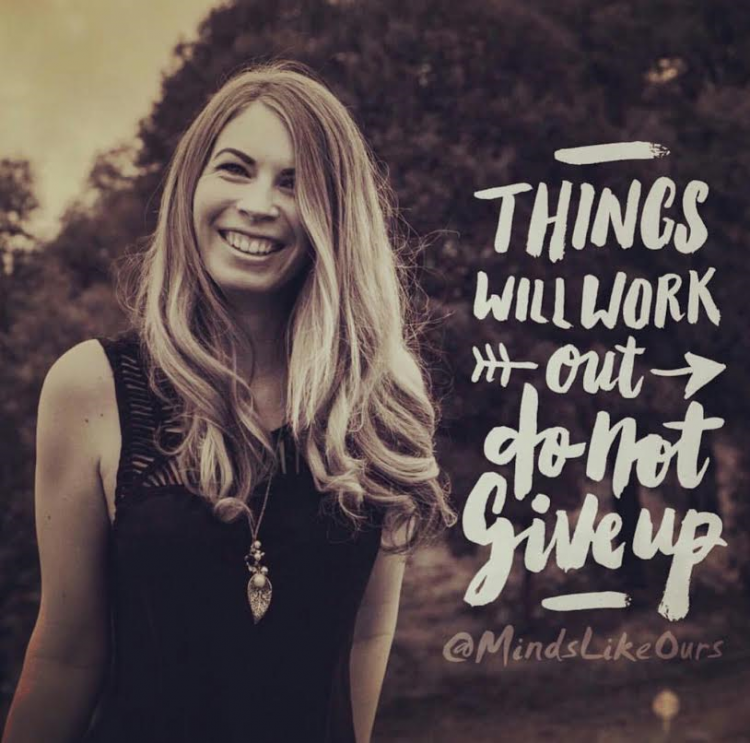
Once I committed to recovery and changing my whole lifestyle, I discovered how much help was actually out there. I initially created mindslikeours.org to jot down my thoughts, feelings and emotions regarding mental illness. I wanted to track my recovery and record everything I learned on my journey. That’s when I found this amazing mental health community online. I had no idea how many people out there that struggled as much as I did. E-mails, comments and Facebook messages came pouring in from people all over the world thanking me for sharing my story and how much it helped them to recover. These beautiful people I barely knew offered love, support and admiration and it made a profound impact on me. Their loving energy I felt from them and my therapist gave me a sense of empowerment and the realization I didn’t have to hide or fight this battle on my own. Since, I have become close with several people all over the world that I met through blogging. I am truly grateful for each and every one of my supporters!
Recovery
“Recovery isn’t something you do; it’s a lifestyle.”
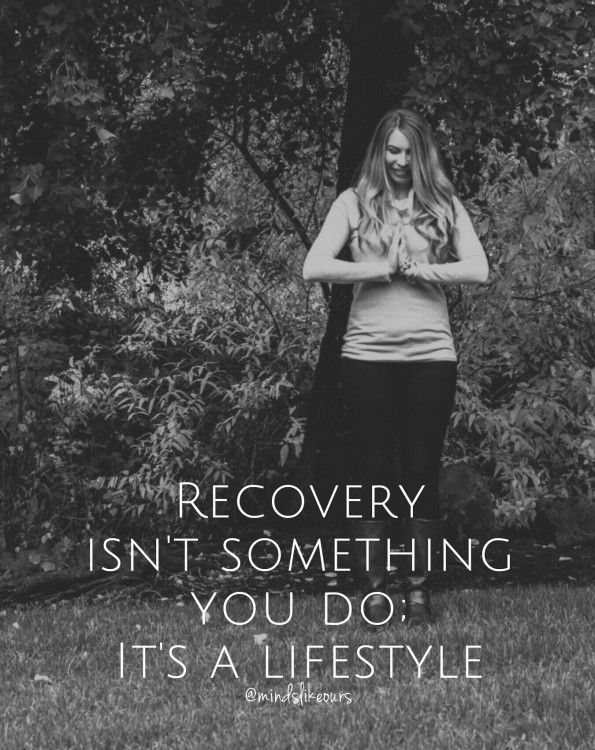
This is the part where you find out who you really are. This is where I found my true self, my passion, my true friends and my strength to overcome just about anything. Recovery starts with willingness. It’s a long road but I assure you — it’s worth it.
As of June 2014, I got out of my unhealthy relationship of three years and decided to make a change in my life; focus on recovery, self-care and overall life-improvement. Aside from my two beautiful children, these have been my top priorities. I was terrified to leave my relationship and face my fears, I was scared to face them alone but I knew I had to. My lifestyle needed to change — I needed a healthier social circle, I needed away from home-brewing beer with the gang, I needed less drama and an overall better support system.
So it began — I moved in with my parents to pay off debt and build up a savings plan again, spent more time with family members, joined a women’s group, stopped drinking so much, focused more of my attention on the kids, finished my associates degree, joined the Recovery International community group, mentored teenagers who have my illness, started my bachelors program in psychology, focused on dialectical behavior therapy, and made therapy a weekly visit rather than a whenever-I-have-an-episode visit. I faced a lot of fears, traveled alone and attended mental health conferences in my free time. It took a lot of courage and strength to take these steps ,but I was determined to be healthy and happy, and now I am.
It’s easy to lose sight of self-care. Life gets busy being a single mom, working full-time and attending school, but it’s important to stay focused on your road to recovery, even if you’re doing OK for the moment.
Two years into my recovery, I was/am considered a recovered borderline. Today, I don’t meet the number of criteria in the DSM for borderline personality disorder. I do, however, still struggle with my emotions. I will always be an emotionally sensitive person but with my DBT therapy, skills and high emotional intelligence, I am capable of handling my emotions in a healthy and positive way. Recovery has led me to new clarity and a deep appreciation for life.
Outcome
“Strength and growth come only through continuous effort and struggle.”
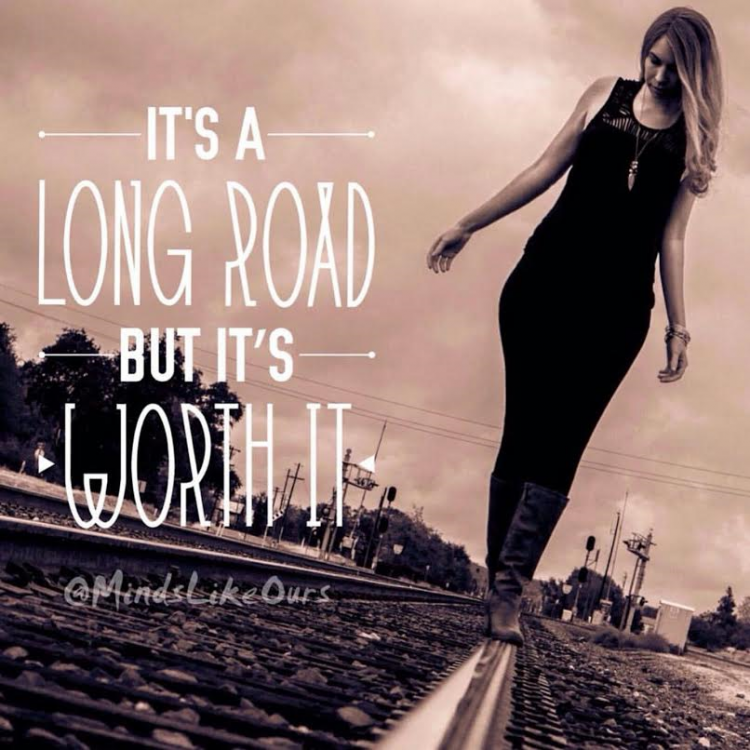
Recovery is possible! I am living proof. This is truly the happiest I have ever been in my life. The experience has lit a fire in my soul. From that moment forward, I have been inspired to seek out new avenues to nurture my inner self. I still continue therapy twice a month for overall personal development. I am passionate about learning and becoming a better person every single day. Recovery has become my lifestyle and I can’t imagine ever going back to any other lifestyle. I still have many things I want to work on in my life and I’m aware that nothing is perfect, there will be bumps in the road, but I am stronger than I ever have been before and I know I can handle any challenge that comes my way.
I often get asked, “If you could go back and change things (past mistakes, my illness, suffering, and overall life path) – would you?” My answer is no. I have no regrets and everything I have done and been through has made me the person I am today — and I am proud of the person I am now. I wouldn’t be here or learned everything I have learned if I didn’t go through the past pain, mistakes and sufferings. I am wiser and more intelligent because of it all. I firmly believe everything happens for a reason. It all plays out the way it’s supposed to. I own my story.

